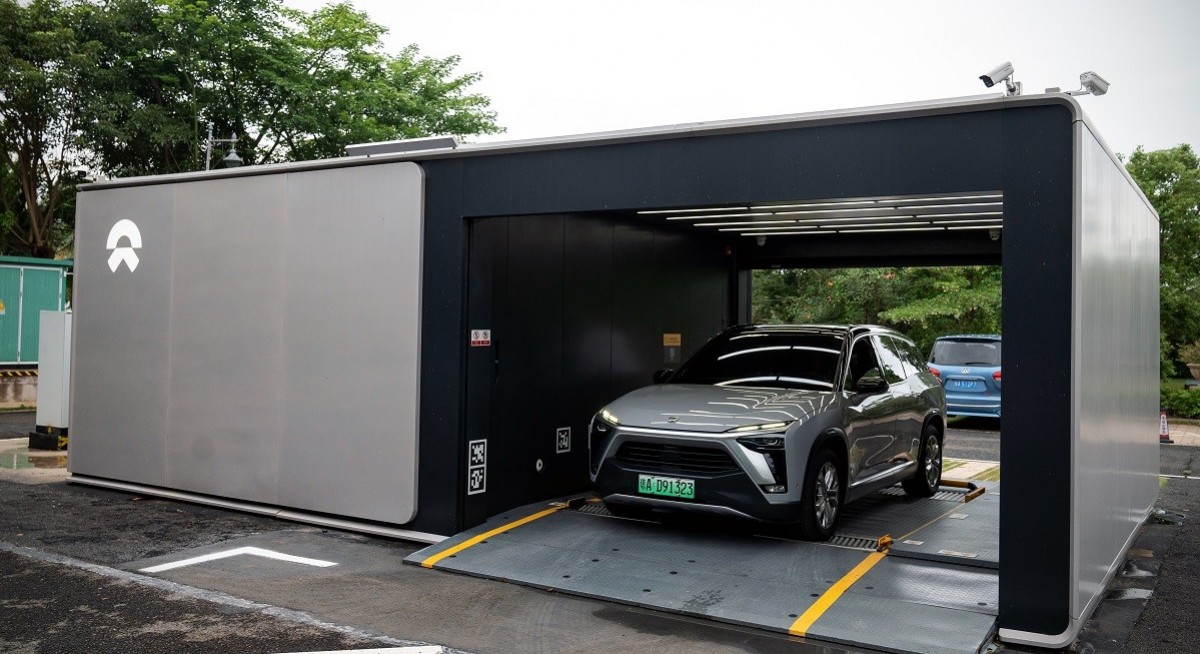“The allegations triggered renewed concerns over Nio’s governance and financial reporting, contributing to the stock’s extended decline,” said Ravi Wong, first vice president at Yan Yun Family Office. Nio’s monthly car sales figures are lagging behind major rivals, and the company’s fundamentals are “not good enough” given the continued price war in the Chinese car market, Wong added.
Nio Extends Loss in Hong Kong as GIC Files Suit
The lawsuit marks a unusual offensive from GIC, which has rarely sued over soured investments. Caixin reported that it’s the first such action by a sovereign wealth fund against a Chinese company listed outside the country. The Singapore fund’s claims echo those made by other investors, and its case has been stayed by a judge as it’s similar to a previous suit filed in 2022 against Nio, according to an Oct 3 filing.
See also: BYD’s US$60 bil wipeout points to deeper turmoil for Chinese electric cars
Nio and GIC declined to comment to Bloomberg News.
The allegations centre around an affiliated company called Nio Battery Asset Co — or Weineng in Chinese — and its role in Nio’s battery subscription model that allows car buyers to avoid purchasing batteries outright. Instead, they can pay a recurring fee to access the company’s network of battery-swap stations.
GIC’s suit contends that Weineng’s financial records show it bought batteries upfront from Nio, allowing Nio to immediately record the full revenue from those sales — even though the end users hadn’t yet paid for the batteries. The filing argued that such income should have been recognised gradually, not all at once.
See also: Germany’s €3 bil EV subsidy will be open to Chinese brands
After a 2022 report from New York-based Grizzly Research detailed these accounting practices, Nio said it would launch an independent committee to investigate the claims, according to the court filings.
That led Nio’s American depositary notes to plunge, resulting in substantial losses, GIC’s filing said. The fund is seeking compensation for all losses relating to Nio’s wrongdoing and reasonable reimbursement of its legal costs, according to the documents.
The company said in 2022 that it had completed the review and concluded that the allegations were unsubstantiated.
“Getting sued by GIC will obviously be negative for sentiment on the stock, but such lawsuits are quite common and usually settled with some compensation,” said Vey-Sern Ling, senior equity adviser for Asia technology at Union Bancaire Privee. “The major point of contention is whether Nio’s practice of recognising revenue upfront for selling batteries to an entity under its control is acceptable by US accounting standards.”
Nio was one of several Chinese firms GIC backed as it ramped up efforts to find the next big technology bets based outside of Silicon Valley. The observation that China’s industrial hubs allowed companies to build consumer products with rapidly optimised hardware, software and supply chains — and cutting-edge technology at low prices — led the sovereign wealth fund to back companies including Nio and Xiaomi Corp.
GIC’s investments in Nio aren’t the first time it’s faced headwinds in China’s tech space. It had a near-miss after backing Starbucks Corp’s Chinese rival Luckin Coffee Inc through its initial public offering, though the firm trimmed much of its stake before an accounting scandal sent the company’s stock price plummeting.
GIC is estimated to manage US$936 billion in assets by consultancy firm Global SWF. It doesn’t typically disclose the size of individual company investments, and it’s unclear how much the fund has lost on Nio so far.
To stay ahead of Singapore and the region’s corporate and economic trends, click here for Latest Section
Despite the legal overhang, Nio is trying to raise its profile overseas and has launched sub-brands in Europe and Southeast Asia. It’s also moving away from its origins as a luxury marque and has introduced mass market models to take on BYD Co, with CEO Li reiterating a forecast for Nio to double sales in 2025 and achieve profitability by the end of the year.
The company has faced near-death experiences before. In 2020, it was rescued by the municipal government of Hefei with a US$1 billion bailout package.
In 2023, Abu Dhabi-backed fund CYVN Holdings invested US$738.5 million and later acquired shares in Nio from an affiliate of Tencent for US$350 million. In December 2023, CYVN committed to invest a further US$2.2 billion in return for a 20.1% stake.




